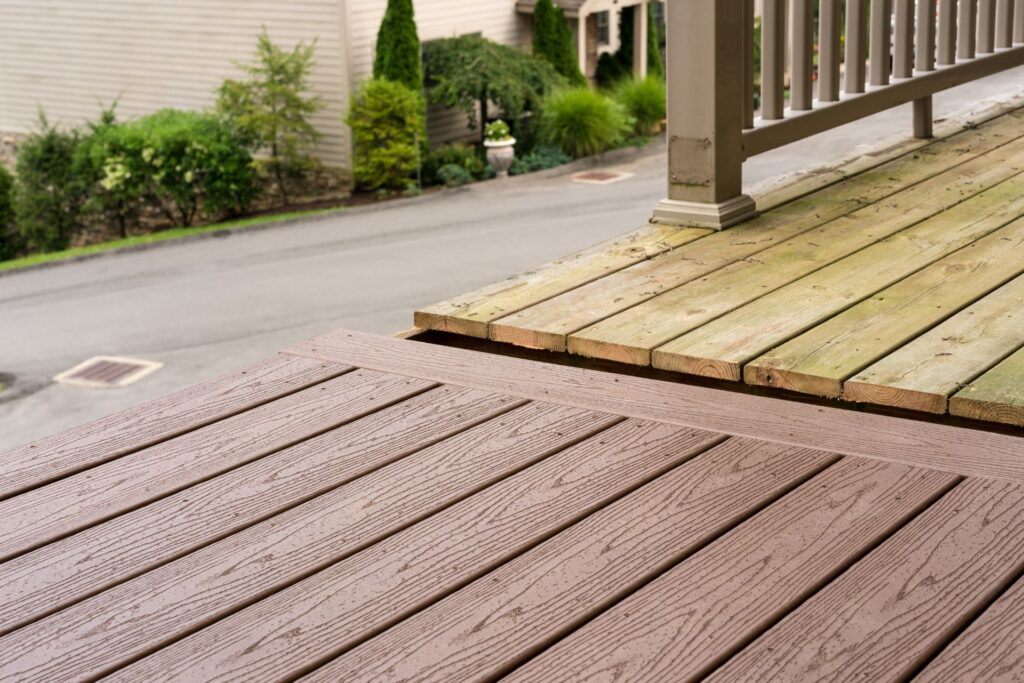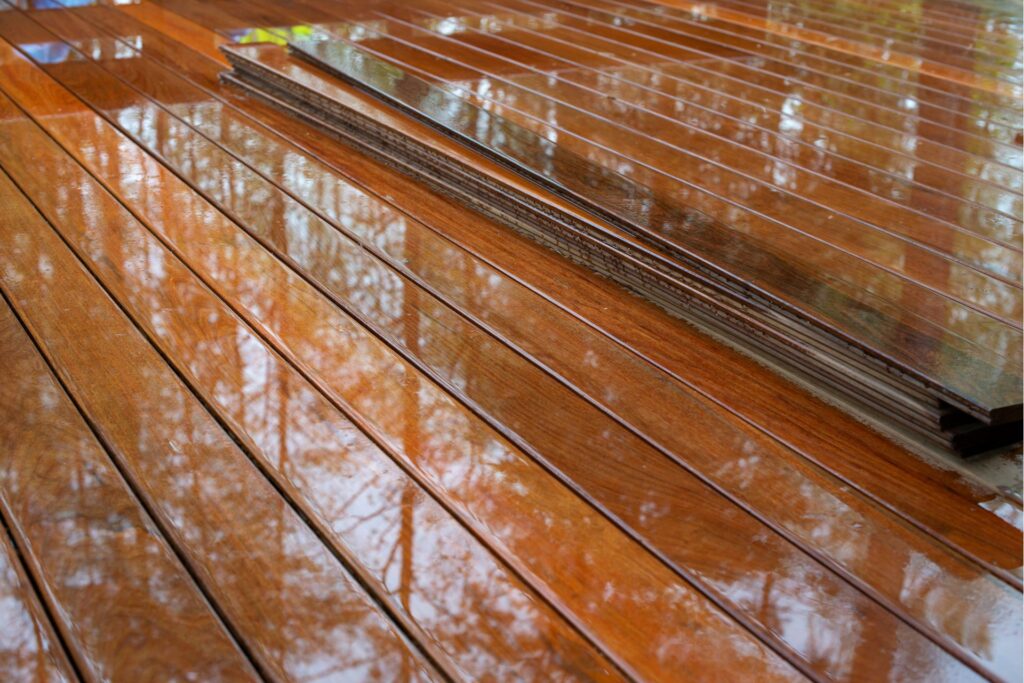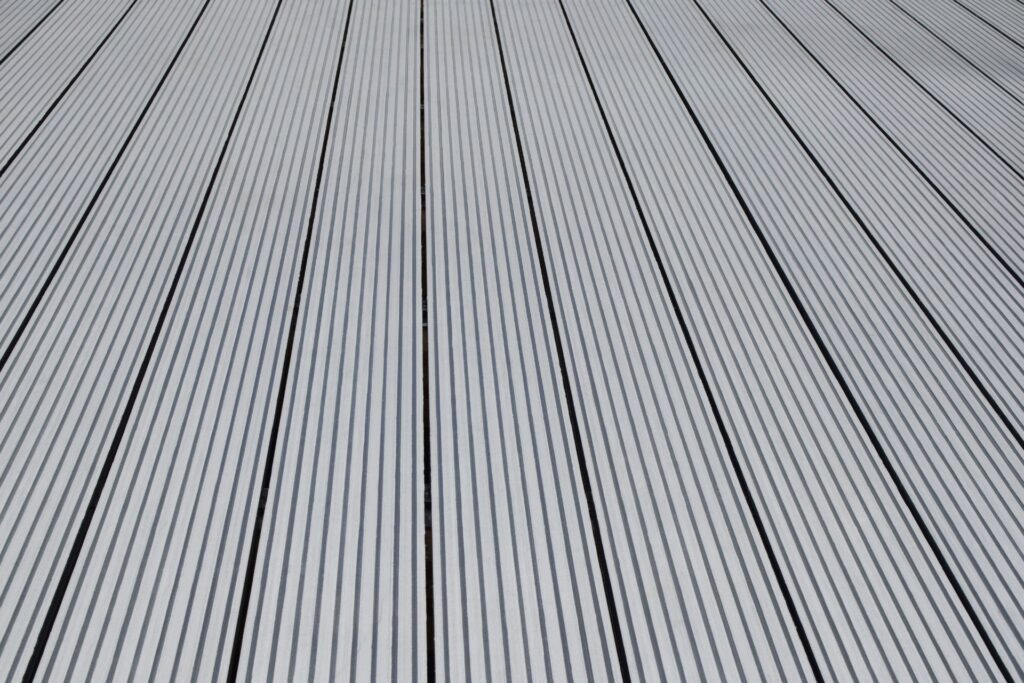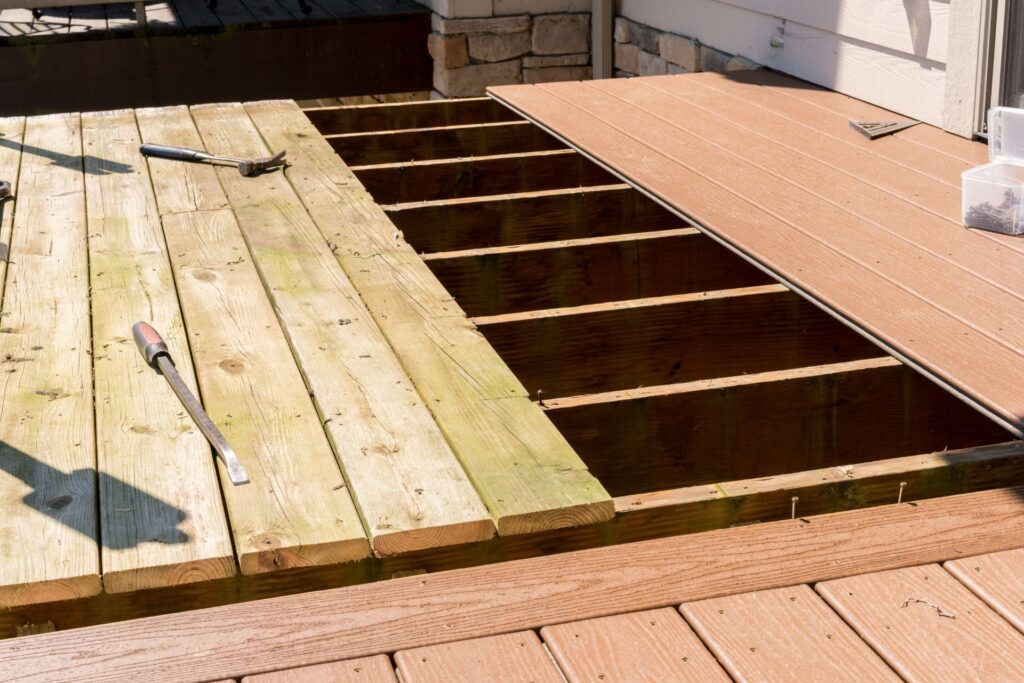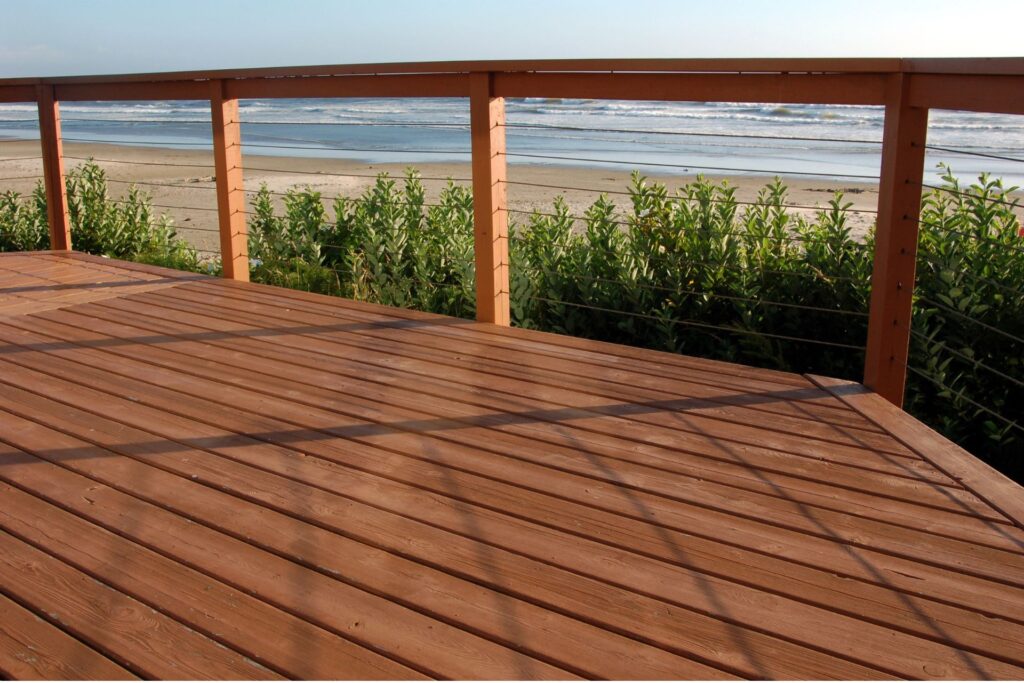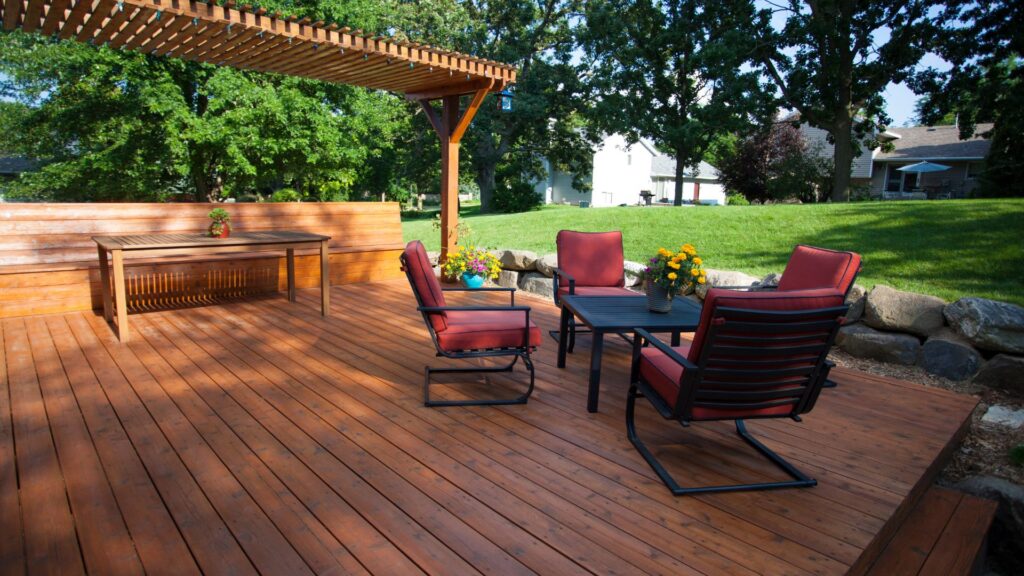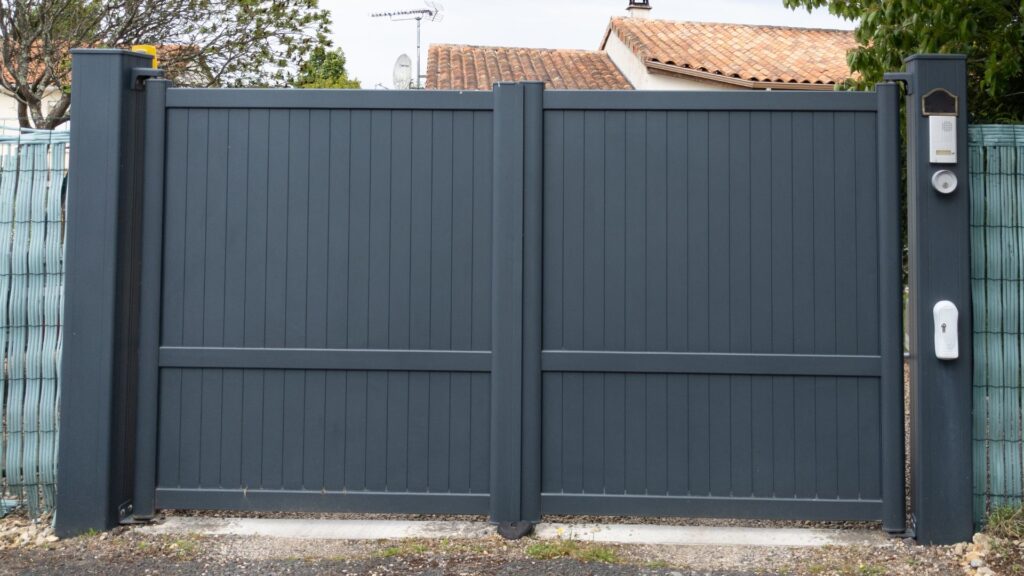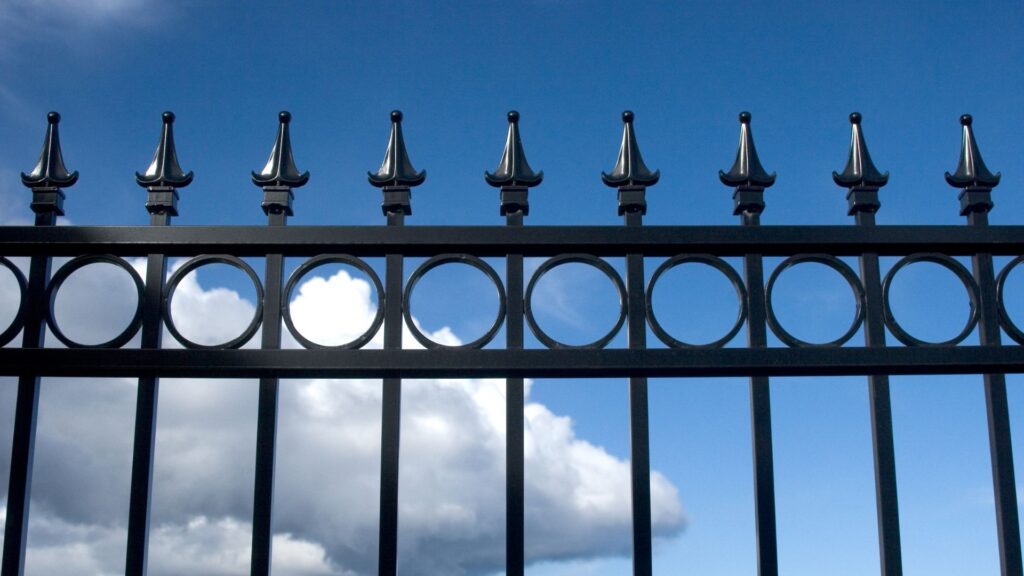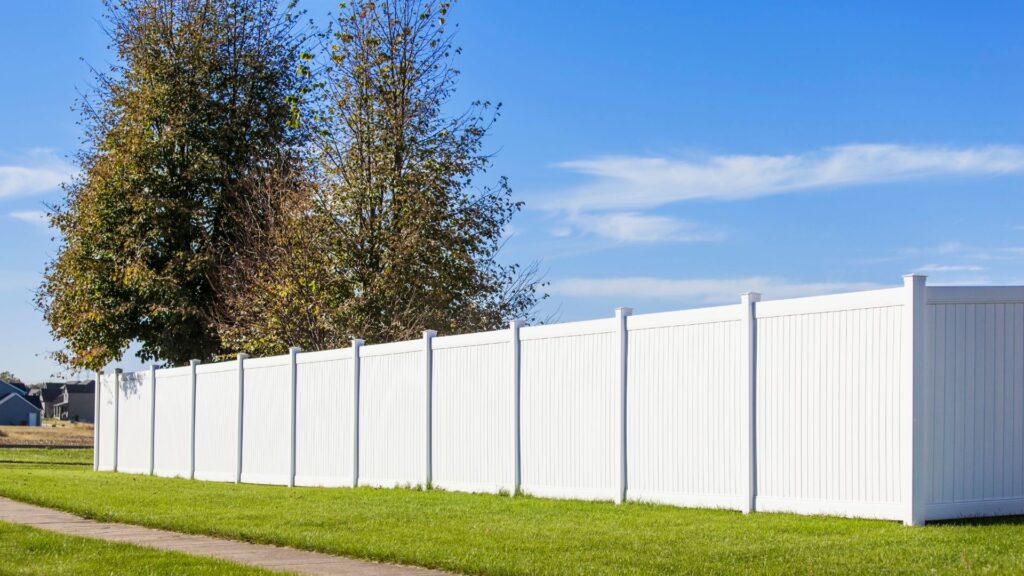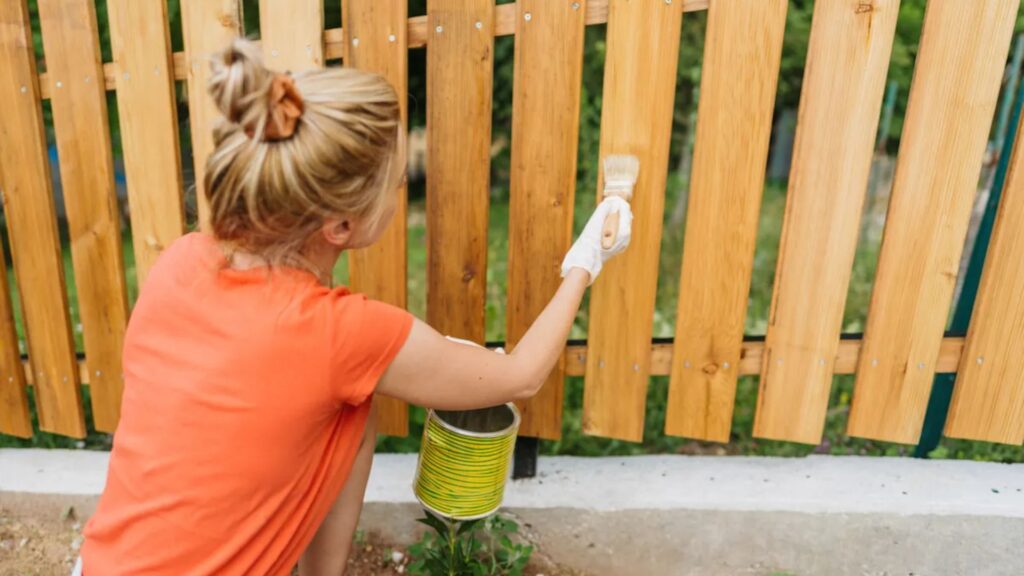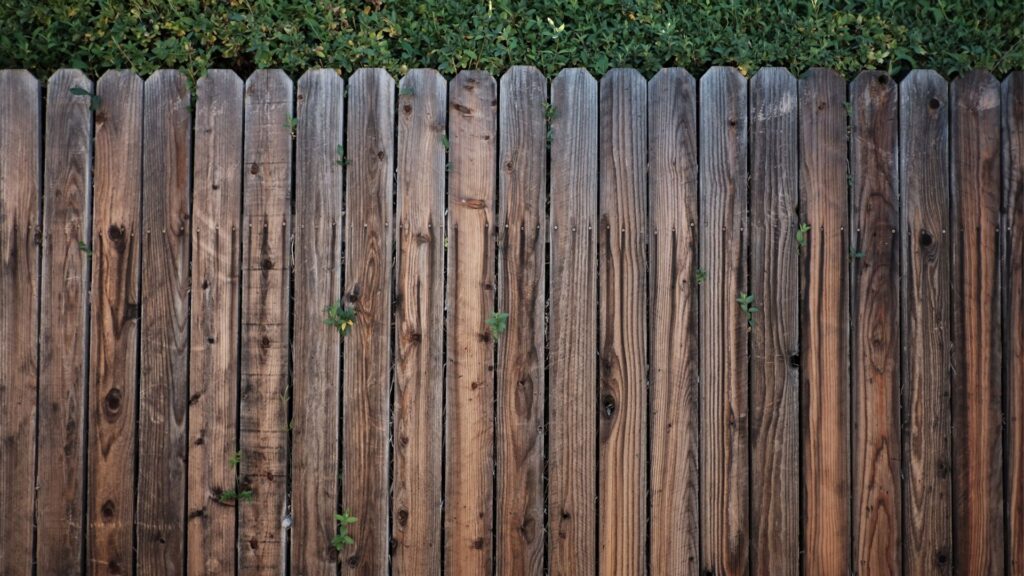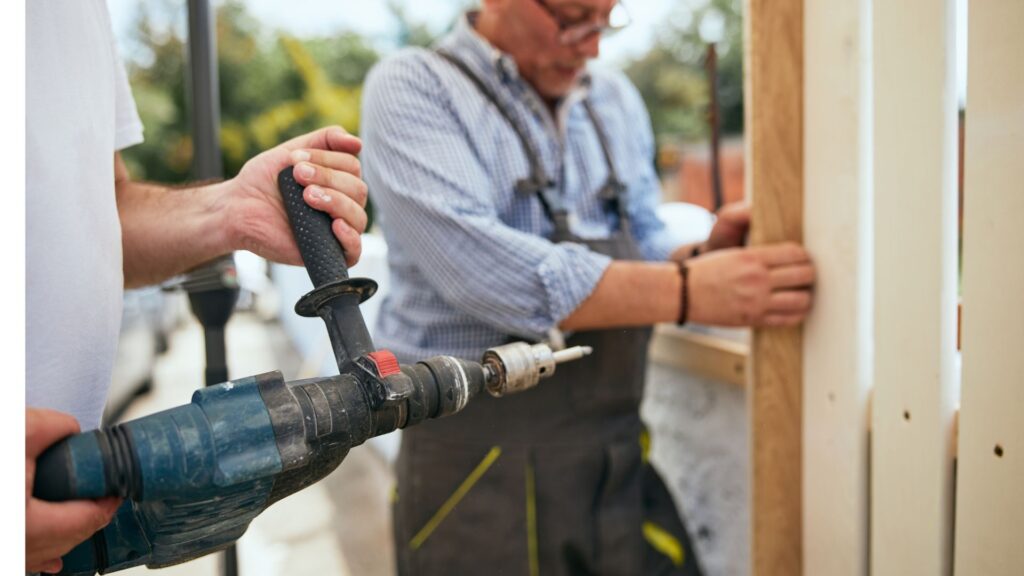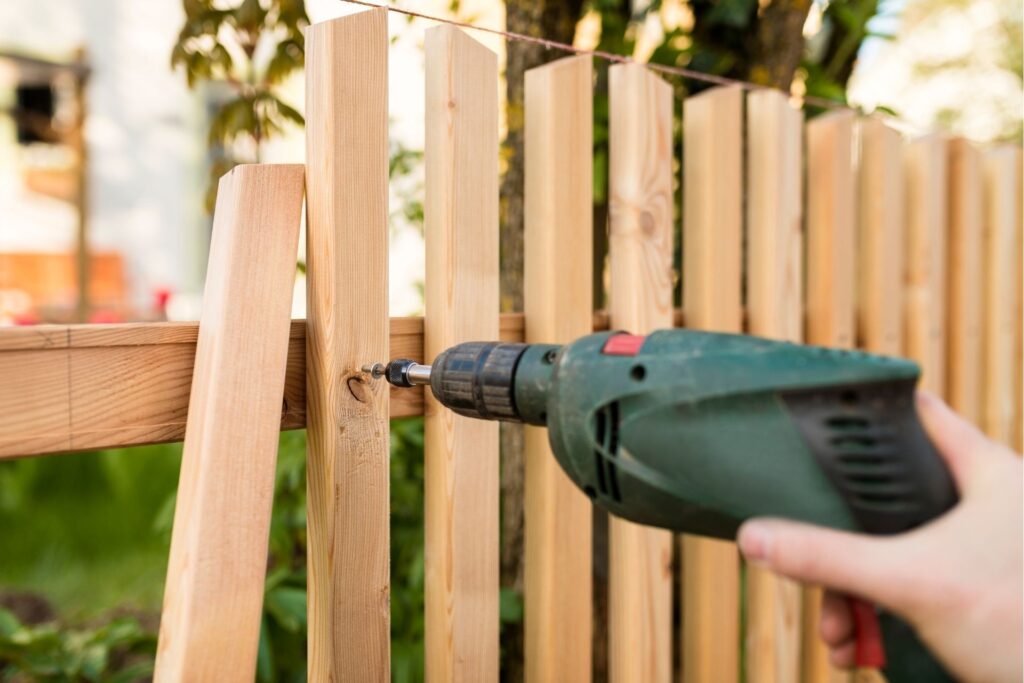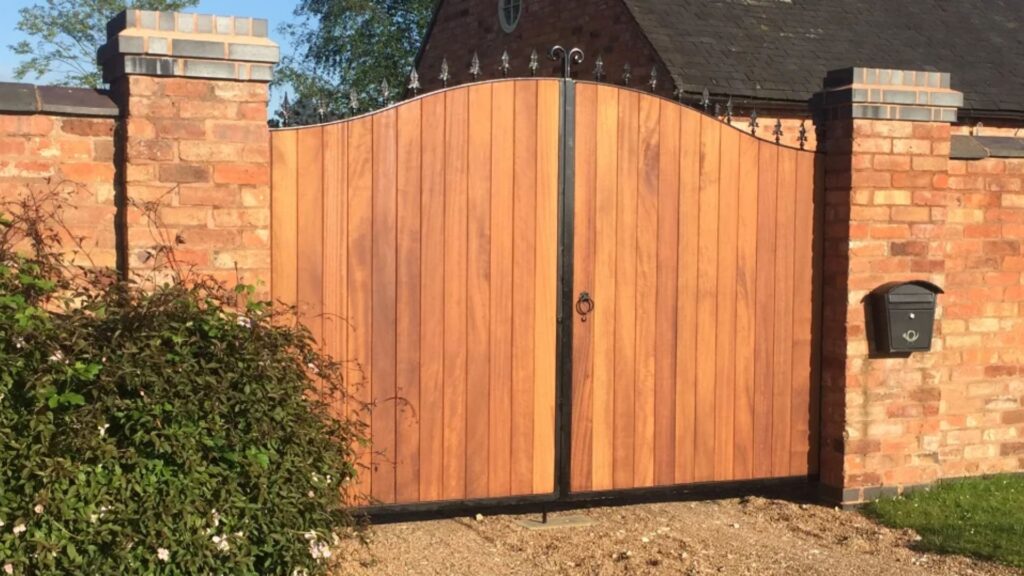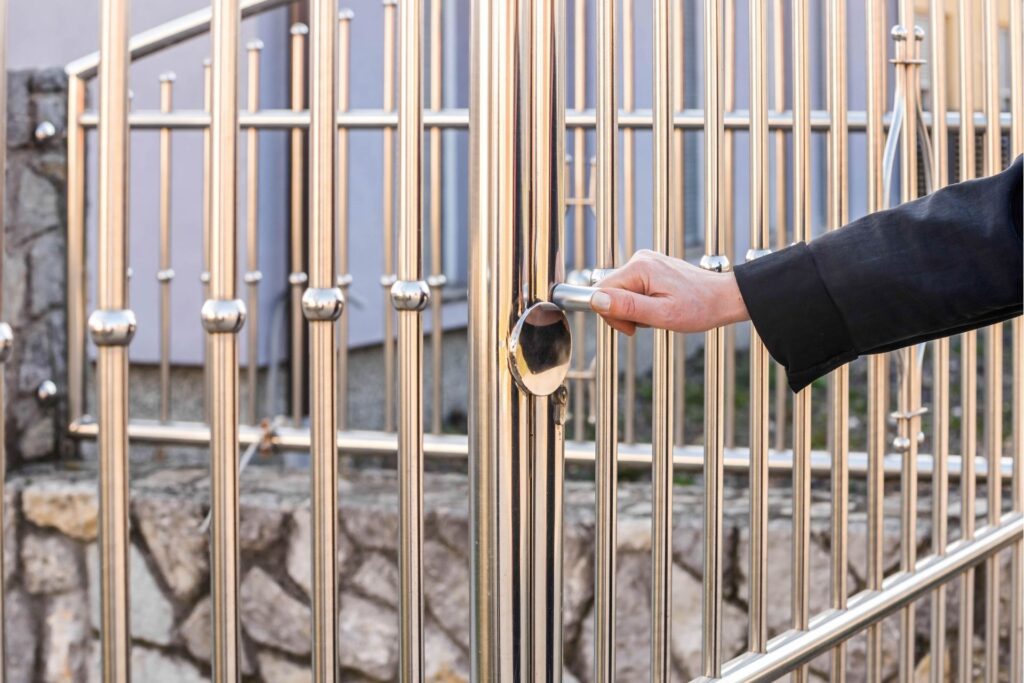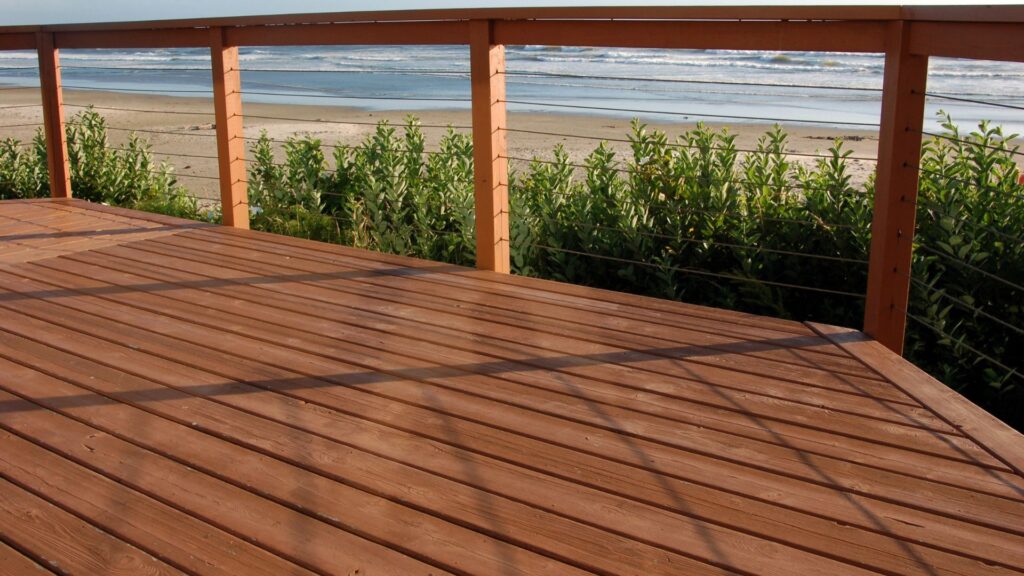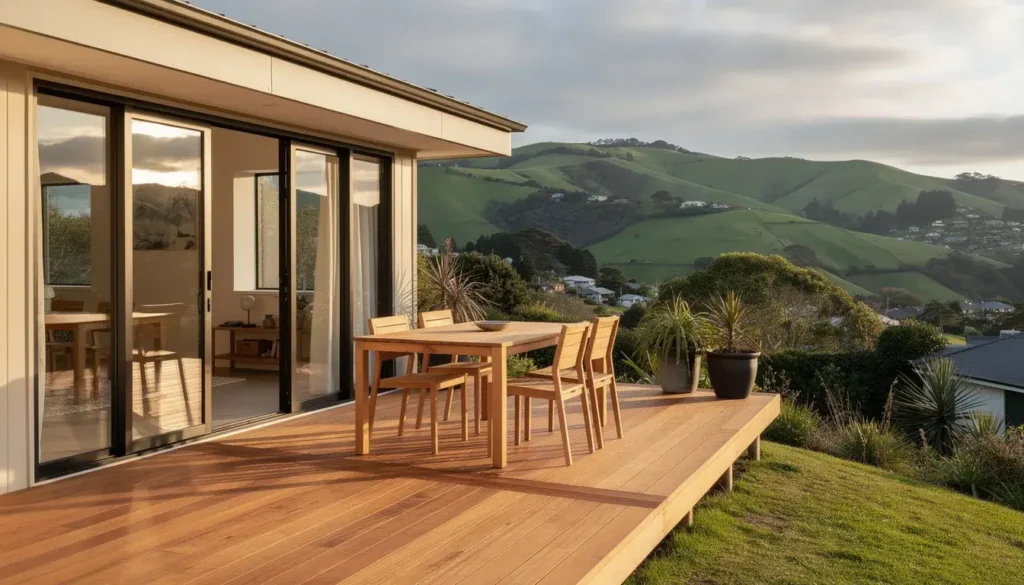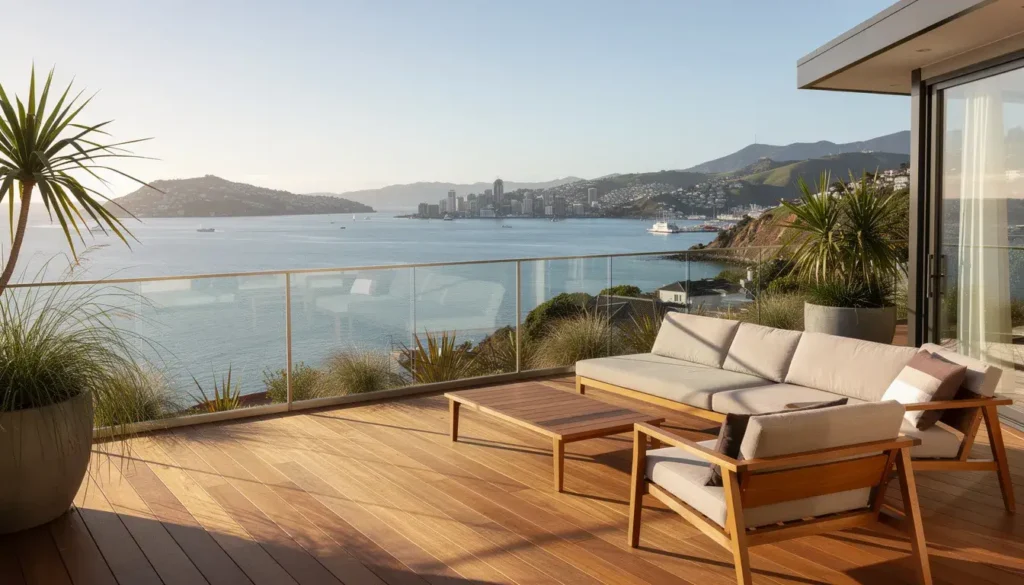Welcome to your ultimate guide to understanding the costs of building a deck in New Zealand. Whether you’re dreaming of lounging on a sun-soaked timber platform or hosting BBQs on a sleek composite surface, knowing what it will cost is essential. In this blog, we’ll break down everything you need to know about deck costs in NZ, including the factors that influence pricing, the pros and cons of different materials, labor costs, and how to budget for your dream outdoor space. From affordable, simple builds to premium, high-end designs, we’ve got you covered with insights that will help you make informed decisions.
On average, building a deck in New Zealand costs between $200 and $600 per square meter, with the final price influenced by several factors such as the choice of materials, deck size, and labor. Budget-friendly materials like pressure-treated pine typically fall on the lower end of the scale, while more expensive options like composite or hardwood can significantly raise the cost. Additionally, labor expenses and site conditions also play a crucial role in determining the overall expense.
Table of Contents
What Influences Deck Costs In NZ?
When considering building a deck in New Zealand, a variety of factors play a role in determining the overall cost. Each aspect contributes to the final budget, so understanding these influences can help you plan more effectively and avoid unexpected expenses.
Factors that Affect Cost
Several key elements will shape how much you will ultimately spend on your deck. These include the size and design, the materials used, labor costs, and the specific site conditions. Let’s break these down in more detail.
Size and Design
The size of your deck is one of the most straightforward cost drivers. Larger decks require more materials and labor, directly increasing the expense. However, the complexity of the design is equally important. Simple, rectangular decks are more economical than intricate layouts with multiple levels, curves, or built-in features like seating or planters. If you opt for a custom design that requires more detailed planning, cutting, and installation, you can expect higher labor and material costs.
Materials
The choice of materials will have a significant impact on the cost of your deck. In New Zealand, there are several common materials to consider.
- Timber: Treated pine is a popular, cost-effective option. However, it requires regular maintenance to avoid weather damage.
- Composite: This material is a blend of wood fibers and plastic, offering the appearance of wood with less maintenance. While more expensive upfront, composite decking tends to last longer and requires less upkeep over time.
- Hardwood: Premium hardwoods like Kwila or Vitex provide durability and a high-end finish but come at a higher price point. These woods also need regular oiling to maintain their look.
Each material type will vary in price depending on availability, quality, and supplier, so it’s essential to compare costs before making a decision.
Labor
Labor is another crucial factor, and prices can vary depending on your location and the experience level of your contractor. In urban centers like Auckland or Wellington, labor rates tend to be higher due to increased demand and cost of living. In more rural areas, labor might be cheaper, but it can also be harder to find skilled contractors, which could delay your project or impact the quality of work.
Contractor experience also plays a role. More experienced builders may charge more, but they often bring expertise that can save you money in the long run by avoiding costly mistakes or ensuring the job is done efficiently and to a high standard.
Site Conditions
The physical characteristics of your building site can significantly influence the overall cost of your deck. If your site is flat and easily accessible, the build will be simpler and less costly. However, if your land is sloping, uneven, or difficult to access, extra work may be needed to level the ground, provide additional structural support, or navigate drainage challenges.
Issues like poor drainage may require additional materials and labor to create an adequate foundation for the deck, and limited access might necessitate specialized equipment or increase labor hours.
Understanding the key factors that affect deck costs in New Zealand helps set realistic expectations and budget more effectively. By considering the size and design of your deck, selecting the right materials, and factoring in labor costs and site conditions, you can make informed decisions that suit both your vision and your financial plan.
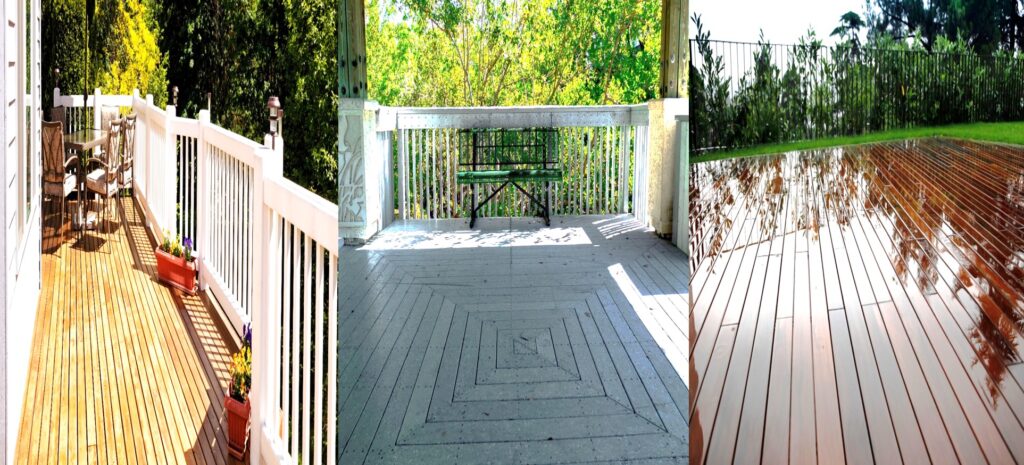
Types Of Decking Materials And Their Costs
When building a deck, choosing the right material is crucial not only for the aesthetics but also for the functionality and durability of your outdoor space. Below, we’ll explore the most common types of decking materials in New Zealand, discussing their costs, benefits, and drawbacks so that you can make an informed decision.
Pressure-Treated Pine
- Cost: Pressure-treated pine is one of the more affordable decking options, typically ranging from $80 to $120 per square meter, including installation.
- Pros and Cons: Pressure-treated pine is known for its durability and resistance to rot and insects, making it a popular choice for budget-conscious homeowners. It’s widely available in New Zealand and easy to work with, offering a classic, natural wood appearance that fits into almost any outdoor space. However, it requires regular maintenance, including staining or sealing, to maintain its appearance and prevent weather damage. Over time, pressure-treated pine may warp or crack, especially in harsher climates, so ongoing care is necessary. The initial lower cost can lead to higher maintenance costs in the long run, which is an important consideration for those seeking a low-maintenance option.
Kwila
- Cost: Kwila, also known as Merbau, is a premium hardwood decking material, with prices typically falling between $180 and $220 per square meter, including installation.
- Pros and Cons: Kwila is highly prized in New Zealand for its rich, reddish-brown color and exceptional durability. It is naturally resistant to rot, insects, and decay, meaning it can withstand the country’s varying weather conditions, making it a long-lasting option for homeowners who want a beautiful and resilient deck. One downside is that Kwila’s color can fade to grey over time if not properly maintained, so regular oiling is required to retain its vibrant appearance. Kwila is also known to bleed tannins when first installed, which may stain surrounding surfaces. Despite these drawbacks, Kwila remains a top choice for those looking to invest in a high-quality, attractive deck.
Composite Decking
- Cost: Composite decking tends to have a higher upfront cost, ranging from $200 to $280 per square meter, including installation.
- Pros and Cons: Composite decking is a blend of wood fibers and recycled plastic, making it an eco-friendly option. While it does have a higher initial cost, many homeowners are drawn to composite decking due to its minimal maintenance requirements and long lifespan—often up to 25 years or more. Unlike wood, composite decking doesn’t require staining, sealing, or painting, and it’s resistant to rot, splinters, and insect damage. Composite materials are available in a wide range of colors and finishes, allowing for a customizable aesthetic. However, some people feel that composite decking lacks the natural warmth and texture of real wood. Additionally, the material can get hot underfoot in direct sunlight, which might be uncomfortable in some outdoor settings.
Hardwood Decking (e.g., Vitex, Purpleheart)
- Cost: Hardwood decking is a premium option, often costing between $250 and $300 per square meter, including installation.
- Pros and Cons: Hardwood decking, such as Vitex and Purpleheart, is a popular choice for those seeking a luxurious and long-lasting decking material. These exotic woods are incredibly durable and can withstand New Zealand’s diverse weather conditions, offering decades of use with proper care. They boast a stunning natural appearance, with rich color tones that enhance the visual appeal of any outdoor space. However, hardwood decks require regular maintenance to preserve their beauty, including periodic cleaning and oiling. The high upfront cost can be a deterrent for some, but many homeowners see it as a worthwhile investment given the longevity and aesthetic appeal of hardwood decking. Keep in mind that exotic woods like Purpleheart may be harder to source, adding to both the cost and potential wait times for installation.
When deciding on the right decking material for your project, it’s essential to weigh both the initial costs and long-term maintenance requirements. Whether you opt for the affordability of pressure-treated pine, the rich appeal of Kwila, the convenience of composite, or the durability of hardwood, each option brings unique benefits that can help you create the perfect outdoor living space.
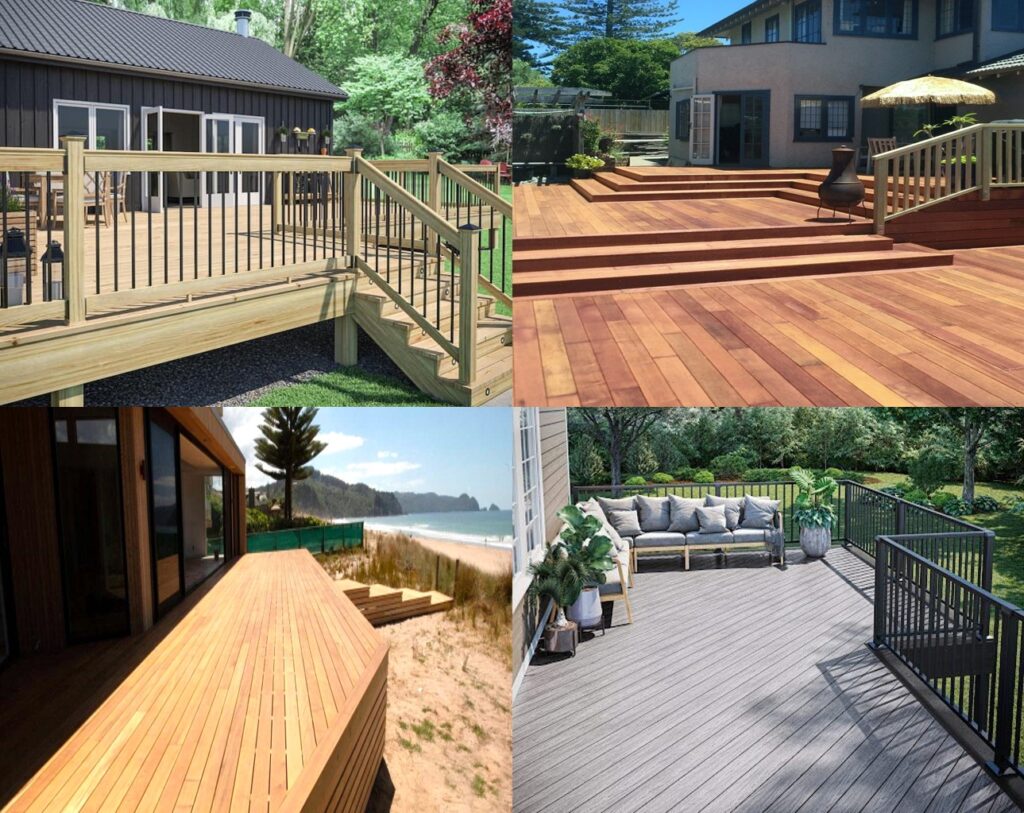
Breakdown Of Labor Costs In NZ
Labor Cost Overview
When planning a deck build in New Zealand, one of the major considerations is labor costs. On average, professional deck builders charge between NZD $50 and $100 per hour, depending on their experience and the complexity of the project. Junior tradespeople or apprentices may charge on the lower end of the scale, while more experienced builders or specialists can be at the higher end. The scope of work also impacts the price, simple designs or small decks require less time and effort, while larger, more intricate builds can demand significantly more labor hours and specialized skills.
Regional Variations
Labor rates in New Zealand aren’t uniform across the country. In urban centers such as Auckland, Wellington, and Christchurch, deck builders tend to charge more due to the higher cost of living and increased demand for services. For example, Auckland typically sees rates closer to NZD $90 to $120 per hour due to the city’s size and economic activity. Wellington and Christchurch are somewhat similar, though rates can vary slightly based on competition and the availability of skilled labor. On the other hand, rural areas often have lower labor costs. In regions with smaller populations and less building activity, homeowners might find that deck builders charge closer to NZD $50 to $70 per hour, but they may need to account for travel fees or other additional charges if skilled tradespeople are coming from nearby cities.
DIY vs. Hiring Professionals
The decision between doing it yourself (DIY) or hiring professionals often comes down to cost versus quality. DIY can save a significant amount of money on labor costs, as you’ll only be paying for materials. However, it’s important to factor in the time, effort, and potential risks associated with taking on a deck-building project yourself particularly if you lack experience. For basic builds or if you have a background in carpentry, DIY might be a cost-effective option. However, for more complex projects, hiring professionals offers numerous advantages. Professionals bring expertise, ensuring that the deck is structurally sound and complies with local building codes. They can also complete the project more quickly and efficiently, which can save you time and stress in the long run. While hiring professionals may increase your upfront costs, it often results in a better quality build, which can increase the value of your property and minimize the risk of costly mistakes or repairs in the future.
Understanding labor costs in New Zealand involves considering hourly rates, regional differences, and the trade-off between DIY and professional work. While costs may vary depending on the scope of your project and your location, choosing the right approach for your build will ensure you get the most value out of your investment.
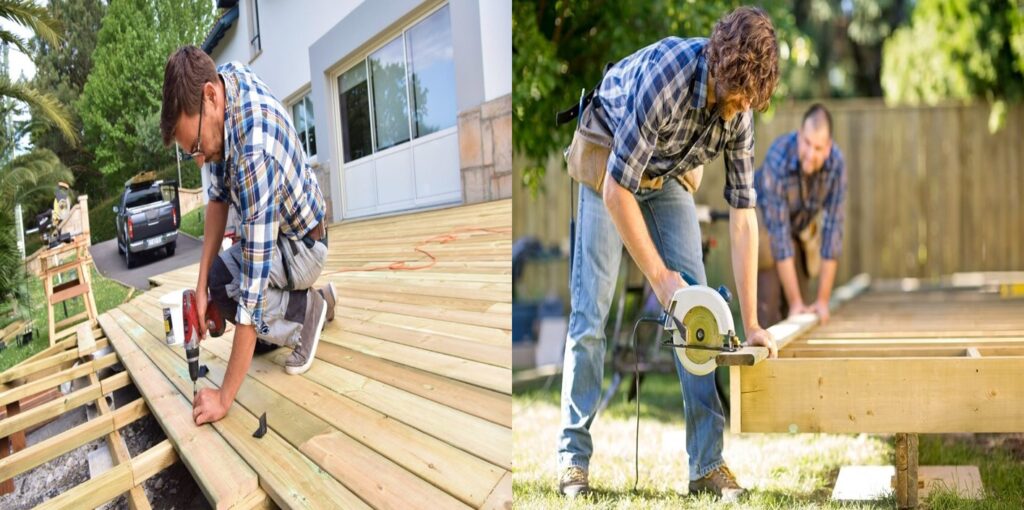
Additional Costs To Consider
When planning for a new deck, it’s important to think beyond the materials and construction. A variety of additional costs can emerge that you’ll need to account for to avoid surprises in your budget. These include building consent, deck accessories, and the ongoing maintenance required to keep your deck in top condition.
Building Consent and Permits
In many cases, obtaining building consent is essential when constructing a deck. The need for consent typically arises if the deck is higher than 1.5 meters off the ground, is attached to the house, or involves certain structural considerations. In New Zealand, the cost for building consent can vary depending on the local council and the complexity of your project. Typically, you might be looking at anywhere from $500 to $2,000 in fees. Additionally, if your deck requires an inspection or approval from a third party (such as an engineer), these fees should also be factored into your budget. Ensuring your deck complies with local regulations not only keeps your project legal but can also impact its long-term durability and resale value.
Deck Accessories
Deck accessories can significantly enhance the functionality and aesthetics of your deck, but they also add to the overall cost. Here are some key accessories to consider.
- Railings: Safety and style often come together when choosing the right railings for your deck. Timber railings are a popular and cost-effective option, generally ranging from $100 to $150 per meter. Glass railings offer a more modern and sleek look but come with a higher price tag, often costing between $300 and $600 per meter depending on the type and installation method. Stainless steel railings offer durability and a contemporary design, falling in a similar price range to glass at around $400 to $700 per meter.
- Lighting: Outdoor lighting can elevate your deck’s ambiance while providing essential visibility during the evening. Solar-powered lights are an affordable option, typically starting at around $20 per fixture, while wired lighting systems can range from $200 to $1,000 depending on the design and installation complexity. Including lighting in your deck’s design ensures that the space is functional and inviting, day or night.
- Stairs: For decks built on sloped properties or raised decks, adding stairs is often a necessity. The cost of stairs will depend on the number of steps, the materials used, and the design. Simple timber stairs may cost as little as $300 to $500, while more elaborate designs using higher-end materials like composite or metal could range from $1,000 to $3,000. Stairs also play a crucial role in making the deck accessible and practical, so it’s worth investing in quality materials and design.
Finishing and Maintenance
Proper finishing and ongoing maintenance are crucial to ensuring the longevity of your deck. Without the right protection, your deck can be prone to weather damage, fading, and wear over time.
- Staining/Sealing: To protect your deck from the elements, staining or sealing is recommended, particularly for timber decks. The cost for staining or sealing depends on the size of your deck and the type of finish used. On average, you can expect to pay between $5 to $10 per square meter for a basic application. Higher-end sealants or stains designed to resist UV rays and moisture may push the cost higher, potentially ranging from $15 to $20 per square meter. Sealing your deck every few years helps prevent warping, cracking, and general wear, keeping it looking fresh and new.
- Ongoing Maintenance Costs: Timber decks, while beautiful and natural, require more upkeep than composite alternatives. Regular cleaning, sanding, and resealing can be an annual expense, adding up to hundreds of dollars each year, depending on the deck’s size and condition. In contrast, composite decks require far less maintenance, often just a periodic clean with water and mild detergent making them a more attractive option for homeowners who prefer a low-maintenance outdoor space. Although composite materials have a higher upfront cost, the savings on maintenance can make them more cost-effective in the long run.
While the initial costs of building a deck might seem straightforward, it’s essential to account for additional expenses like consents, accessories, and maintenance. These extra considerations not only contribute to the overall budget but also impact the functionality, safety, and longevity of your outdoor living space. By factoring in these elements from the start, you’ll be better prepared for the true cost of your deck and can enjoy it for many years to come.

Typical Decking Cost Examples In NZ
When you’re planning to build a deck, costs can vary widely depending on the size, materials, and overall complexity of your design. Below are three typical examples of decking costs in New Zealand, ranging from budget-friendly options to premium, high-end installations. These examples are meant to help you gauge what you can expect based on your budget and desired features.
Budget-Friendly Deck (Small/Basic Design)
For homeowners looking to add outdoor space without breaking the bank, a budget-friendly deck is a practical option. A simple deck constructed from pressure-treated pine is typically the most affordable choice. These decks are often smaller in size, ranging from about 10 to 20 square meters, and feature a straightforward design without any intricate details.
The cost for a basic deck of this size, using pressure-treated pine, generally falls between $3,000 and $5,000 NZD. This includes the cost of materials and basic labor, such as preparing the ground, installing the framing, and laying the decking boards. Keep in mind that opting for pressure-treated pine provides durability at a lower cost, making it suitable for budget-conscious homeowners. However, maintenance such as staining or sealing will be required to protect the wood from the elements over time.
Mid-Range Deck (Moderate Size/Quality Materials)
For those seeking a bit more flair and durability, a mid-range deck strikes a balance between cost and quality. These decks often feature more robust materials, such as Kwila (also known as Merbau), which is a popular hardwood in New Zealand. Kwila decking adds an element of luxury and longevity due to its natural resistance to decay and stunning appearance. The deck might also include basic railings for safety and style.
A typical mid-range deck will be moderately sized, around 20 to 40 square meters, and the cost usually falls within the range of $7,000 to $12,000 NZD. This price includes the materials, labor, and additional features like simple railings. Though Kwila is more expensive than pine, its long-lasting properties and attractive finish make it a worthwhile investment for those looking for a deck that will stand the test of time with less maintenance.
Premium Deck (Large/High-End Materials)
At the top end of the spectrum, a premium deck offers not just a functional outdoor space but a feature that can dramatically enhance the value of your home. Premium decks are typically larger, over 40 square meters, and are built using high-end materials such as hardwoods like Vitex or composite decking materials. Composite decking, in particular, is a popular choice due to its low maintenance requirements, durability, and sleek appearance.
A premium deck might also include high-quality railings, integrated lighting, and other custom features like built-in seating or planters. The cost for a premium deck of this size, with all the bells and whistles, typically ranges from $15,000 to $25,000 NZD or more, depending on the complexity of the design and additional features. While this is a significant investment, premium decks are designed to be a long-lasting, visually appealing centerpiece of your outdoor living space.
These examples provide a general idea of what to expect when budgeting for your deck project in New Zealand. Remember, the final cost will depend on a variety of factors, including the size of the deck, the materials used, and the complexity of the installation. It’s always a good idea to consult with local deck builders to get an accurate quote tailored to your specific needs.
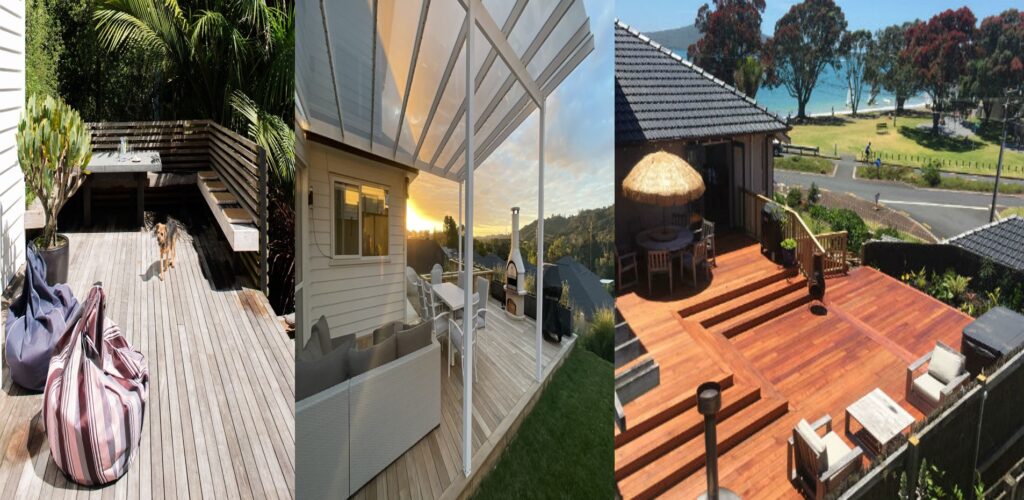
Tips To Save Money On Your Deck Build
When building a deck, one of the most common concerns is how to achieve a high-quality result without breaking the bank. Luckily, there are some practical ways to save money on your deck build without compromising on style or functionality. Here are a few key strategies to help you cut costs and still get the deck of your dreams.
Plan and Design Carefully
One of the best ways to save money on your deck build is to put a lot of thought into your planning and design upfront. Often, costs spiral out of control due to design changes or adding unnecessary complexities to the project. For example, while multi-level decks and intricate patterns can look stunning, they can also add a significant amount of labor and material costs. Simplifying your design can save time and money.
To optimize your deck design, focus on the essentials. Consider the size and shape of the deck, perhaps a rectangular or square shape rather than a custom design could meet your needs at a lower cost. Additionally, make sure to plan the layout carefully to avoid wasting materials. Using standard lengths of decking boards and aligning your deck with your house can reduce cuts and, therefore, waste. Thoughtful planning also ensures that you’re not adding unnecessary features, like complex staircases or railings, which can drive up costs considerably.
Shop Around for Materials
Another effective way to lower your deck-building expenses is to shop around for materials. Don’t settle for the first supplier you find, compare prices from different stores and online retailers to find the best deals. Some suppliers offer discounts when you buy materials in bulk, which can save you a significant amount, especially if you have a larger deck.
You may also want to consider alternative decking materials. While natural wood is beautiful, composite decking or treated timber can be more affordable in the long run and often require less maintenance. If you’re committed to using natural wood, see if your supplier offers off-cuts or reclaimed wood, which can also cut down on costs while being environmentally friendly.
Consider timing your material purchase as well. Building suppliers often have sales or clearance events that can help you snag materials at a fraction of the cost. Don’t hesitate to negotiate with suppliers, sometimes asking for a discount, especially when purchasing in bulk, can pay off.
Consider Off-Season Construction
Timing your deck build can also make a big difference to your budget. Many builders have a busy season, typically in the warmer months, which can drive up labor costs due to high demand. If you’re flexible with your timeline, consider scheduling your project during the off-season. Builders may be more willing to offer discounts when work is slower in the fall or winter, and materials can sometimes be cheaper as well.
Although the weather may not always be ideal during the off-season, with proper planning, it’s possible to work around this challenge. Many builders appreciate having work lined up in their slower periods, and you may find that they are more willing to accommodate your budget. The key is to plan early and communicate with your contractor about the best time to start your project.
By taking the time to carefully plan and design your deck, shop around for materials, and consider off-season construction, you can make significant savings on your deck build. These tips will not only help you stick to your budget but will also ensure you end up with a deck that adds value and enjoyment to your home for years to come.
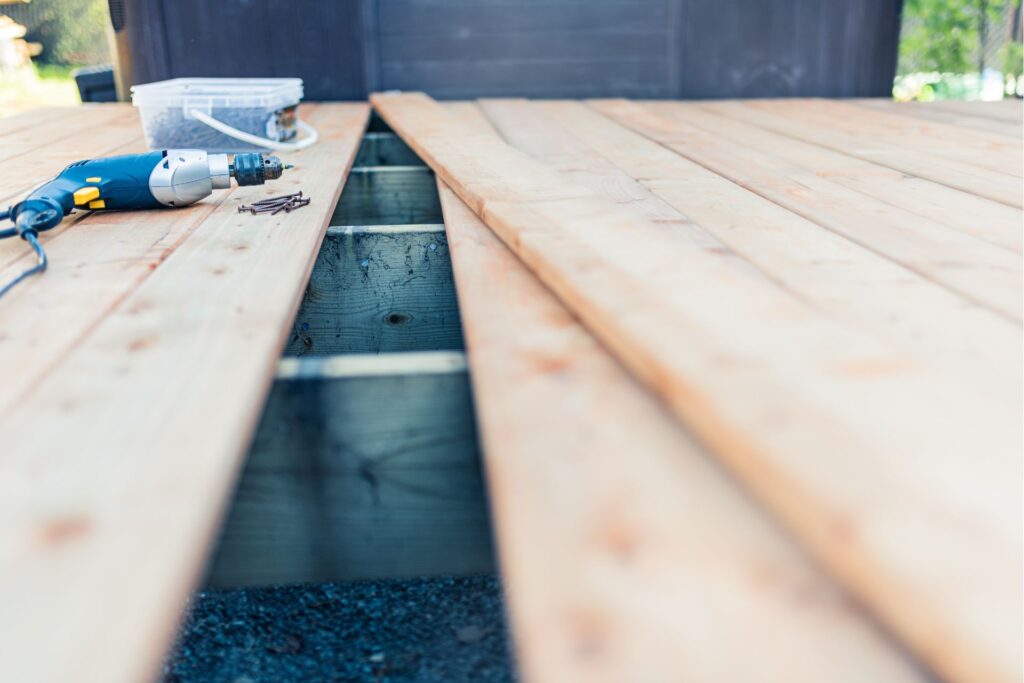
Benefits Of Building A Deck
Increased Outdoor Living Space
One of the most significant benefits of building a deck is the creation of additional outdoor living space. In New Zealand, where the climate encourages outdoor living for much of the year, a deck offers a seamless extension of the home. Imagine having a dedicated area for relaxing with family, hosting barbecues, or simply unwinding after a long day. Decks can be customized to suit your lifestyle, whether you need space for an outdoor dining set, comfortable lounge chairs, or even a spa pool. By expanding your usable space, you can enjoy the outdoors more comfortably and make the most of your property year-round.
Added Property Value
Investing in a deck isn’t just about enhancing your enjoyment of your home—it can also pay off financially. In New Zealand, homebuyers are increasingly looking for properties that offer outdoor living areas, and a well-built deck can significantly boost the value of your property. While the exact return on investment varies depending on materials, design, and location, real estate experts agree that a deck is a desirable feature that can make your home more attractive to potential buyers. The appeal of outdoor space is particularly strong in coastal and suburban areas, where buyers prioritize lifestyle features like decks and patios. By building a deck, you’re not only creating a personal retreat but also enhancing the marketability of your home.
Aesthetic Appeal
A well-designed deck can transform the look of your home’s exterior. Whether you opt for natural timber or a modern composite material, a deck adds structure, texture, and depth to your outdoor space. In New Zealand, where homes often blend with natural surroundings, a deck can be designed to complement the landscape, creating a harmonious connection between indoor and outdoor environments. With thoughtful design choices such as built-in seating, planters, or lighting, you can craft a space that’s not only functional but also visually stunning. The addition of a deck can elevate your home’s aesthetic appeal, making it stand out in your neighborhood and giving you pride in your property.
Building a deck is more than a construction project; it’s an investment in lifestyle, value, and beauty. The benefits of increased living space, enhanced property value, and aesthetic appeal make it a worthwhile addition to any New Zealand home.
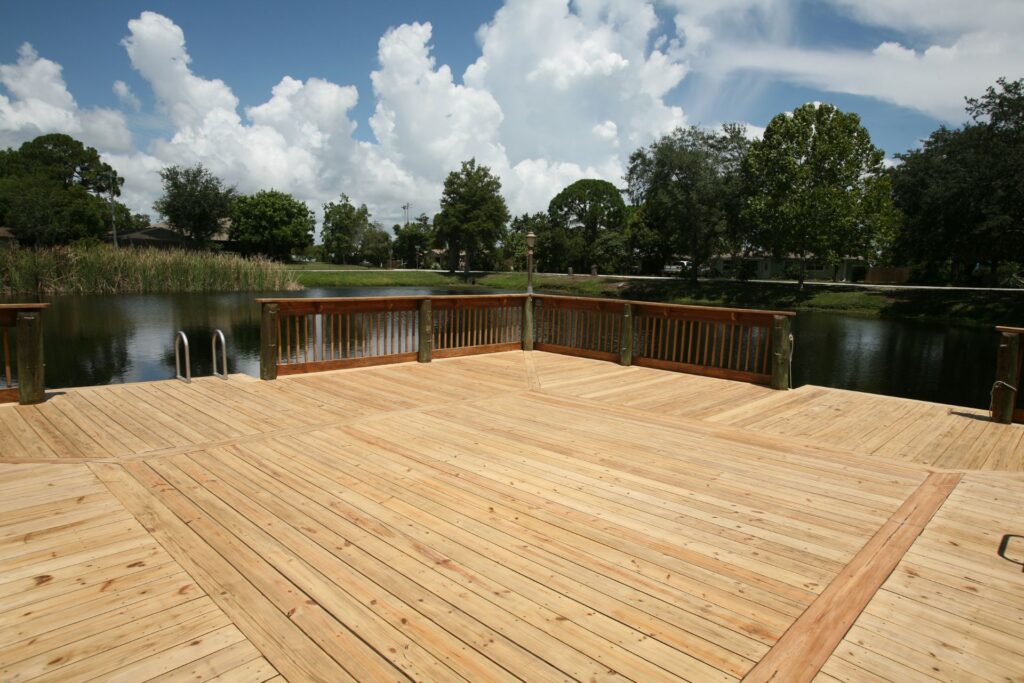
How To Get An Accurate Quote
Requesting Quotes
When it comes to getting quotes for deck building, it’s essential to approach this step with clarity and thoroughness. Start by reaching out to several deck builders in your area, ideally no fewer than three, so you can compare offerings. When requesting quotes, be specific in your communication. Provide each builder with the same set of information to ensure the quotes you receive are consistent and comparable. Be upfront about your expectations, budget, and any constraints you may have.
Also, ask for itemized quotes. This will help you break down the cost of labor, materials, and any other expenses such as permits or site preparation. Remember that clear communication not only helps you get a more accurate estimate but also establishes a strong foundation of trust with your builder.
What to Include in Your Quote Request
A detailed quote request is the key to avoiding surprise costs down the line. Here’s what you should include.
- Site Inspections: Ask the builder to visit your site before giving you a final quote. Site conditions can greatly impact pricing, so a thorough inspection helps the builder identify potential challenges, such as sloping land, drainage needs, or difficult access points. This ensures that the quote you receive is tailored to your specific situation.
- Material Choices: Clearly outline the materials you want to use. Whether you’re opting for treated pine, hardwood, or composite decking, the material choice will influence not only the cost but also the durability and aesthetic of your deck. If you’re unsure about the best materials, ask for options with their associated costs. This helps you make informed decisions and prevents unexpected costs due to changes in material preferences.
- Desired Features: Include any specific features you want, such as built-in seating, lighting, or custom railings. The more detail you provide upfront, the less likely you are to encounter extra charges later for added features you may have assumed were included in the initial quote.
By including these elements in your request, you’ll help the builder create an accurate, all-inclusive quote, reducing the likelihood of cost overruns once the project is underway.
Comparing Quotes
When it comes to comparing quotes, price is important but should never be the only factor in your decision-making process. You’ll want to consider the quality of the service offered, as well as the builder’s reputation and experience.
- Warranties: Look at the warranties offered by each builder. A solid warranty can be a good indicator of the builder’s confidence in their work. This could cover not only materials but also workmanship. A longer warranty period might signal higher quality, providing you with peace of mind knowing your investment is protected.
- Experience: Check the experience level of each builder. An experienced builder might cost more, but their expertise could lead to a smoother construction process and fewer mistakes. Ask for details about their previous projects, especially ones that are similar to what you have in mind.
- Portfolios and References: Ask for a portfolio of their previous work and speak to past clients if possible. Seeing examples of their craftsmanship and hearing about the experiences of other homeowners can provide valuable insights. A builder with a strong portfolio and glowing references is more likely to deliver a deck that meets your expectations.
Obtaining an accurate quote for your deck project requires careful planning, clear communication, and a focus on more than just the bottom line. By following these steps, you’ll be well-equipped to choose a builder who not only fits your budget but also delivers a high-quality, lasting deck that you’ll enjoy for years to come.
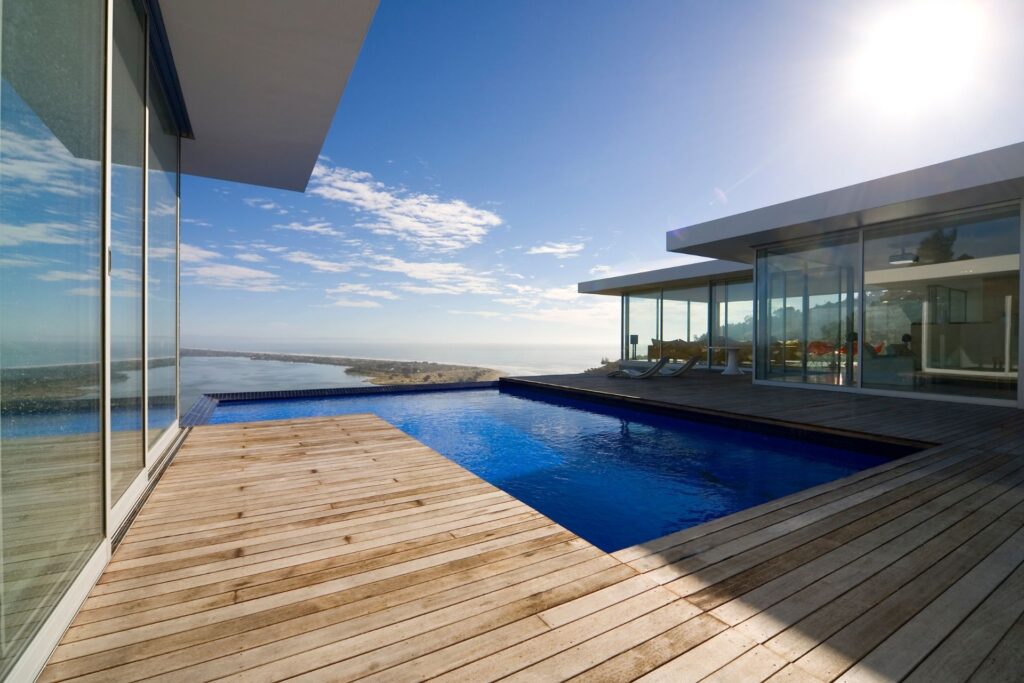
FAQs: About Deck Costs In NZ
How much does it typically cost to build a deck in NZ?
The cost of building a deck in NZ varies depending on factors such as size, materials, and labor. On average, you can expect to pay anywhere from $200 to $600+ per square meter. A small, simple deck might cost between $5,000 and $10,000, while a larger, more complex deck could exceed $20,000.
What is the most affordable decking material in NZ?
Pressure-treated pine is one of the most affordable decking materials in NZ, with costs starting around $200 per square meter. It’s widely available and durable, though it does require regular maintenance like staining or sealing.
How much does Kwila decking cost in NZ?
Kwila is a popular choice for decking in NZ due to its durability and rich color. The cost of Kwila decking typically ranges from $300 to $400+ per square meter, depending on the supplier and quality of the timber.
Is composite decking more expensive than timber?
Yes, composite decking tends to be more expensive than most timber options. The upfront cost for composite decking usually ranges between $400 and $600 per square meter, but it is low-maintenance and long-lasting, which can save money over time.
Do I need building consent for a deck in NZ?
In many cases, building consent is required for decks that are more than 1.5 meters off the ground or have specific design complexities. The cost for building consent can vary depending on your location, but it typically ranges from $500 to $2,000.
How much does labor typically cost to build a deck in NZ?
Labor costs for building a deck in NZ can vary based on region and contractor experience. Typically, rates range from $50 to $100 per hour. Labor for a medium-sized deck can cost between $3,000 and $8,000, depending on the complexity of the project.
What are the ongoing maintenance costs for timber decks?
Timber decks require regular maintenance, including staining or sealing every 1-2 years. The cost for maintenance supplies (e.g., stain, sealant) can range from $200 to $500, depending on the size of the deck. Hiring professionals for this task could add an additional $500 to $1,500.
Can I build a deck myself to save money?
Yes, building a deck yourself can save you on labor costs, but it requires a certain level of skill, experience, and time commitment. You’ll also need to factor in the cost of tools and materials. For larger or more complex projects, it’s often better to hire professionals to ensure safety and compliance with local building codes.
What are some ways to save money on building a deck?
To save money on building a deck, consider simplifying the design, using more affordable materials like pressure-treated pine, and comparing quotes from multiple contractors. You can also save by purchasing materials during sales or by building in the off-season when labor costs may be lower.
How much value does a deck add to a property in NZ?
A well-built deck can add significant value to a home by increasing usable outdoor space and enhancing the property’s aesthetic appeal. While the exact value added depends on the quality and size of the deck, it’s generally considered a good investment that can offer a return in both lifestyle enjoyment and property resale value.
Conclusion
To wrap up, it’s important to remember that various factors such as material choices, labor expenses, and necessary permits can all impact the final cost of your deck project in NZ. Taking the time to plan thoroughly and budget wisely can help you steer clear of unforeseen costs and achieve a deck that meets both your financial and personal requirements. When you’re ready, don’t hesitate to contact local builders for customized quotes and professional guidance. Also, be sure to subscribe to our newsletter for ongoing advice and inspiration on outdoor living and home improvement projects.
About the Author:
Mike Veail is a recognized digital marketing expert with over 6 years of experience in helping tradespeople and small businesses thrive online. A former quantity surveyor, Mike combines deep industry knowledge with hands-on expertise in SEO and Google Ads. His marketing strategies are tailored to the specific needs of the trades sector, helping businesses increase visibility and generate more leads through proven, ethical methods.
Mike has successfully partnered with numerous companies, establishing a track record of delivering measurable results. His work has been featured across various platforms that showcase his expertise in lead generation and online marketing for the trades sector.
Learn more about Mike's experience and services at https://theleadguy.online or follow him on social media:
